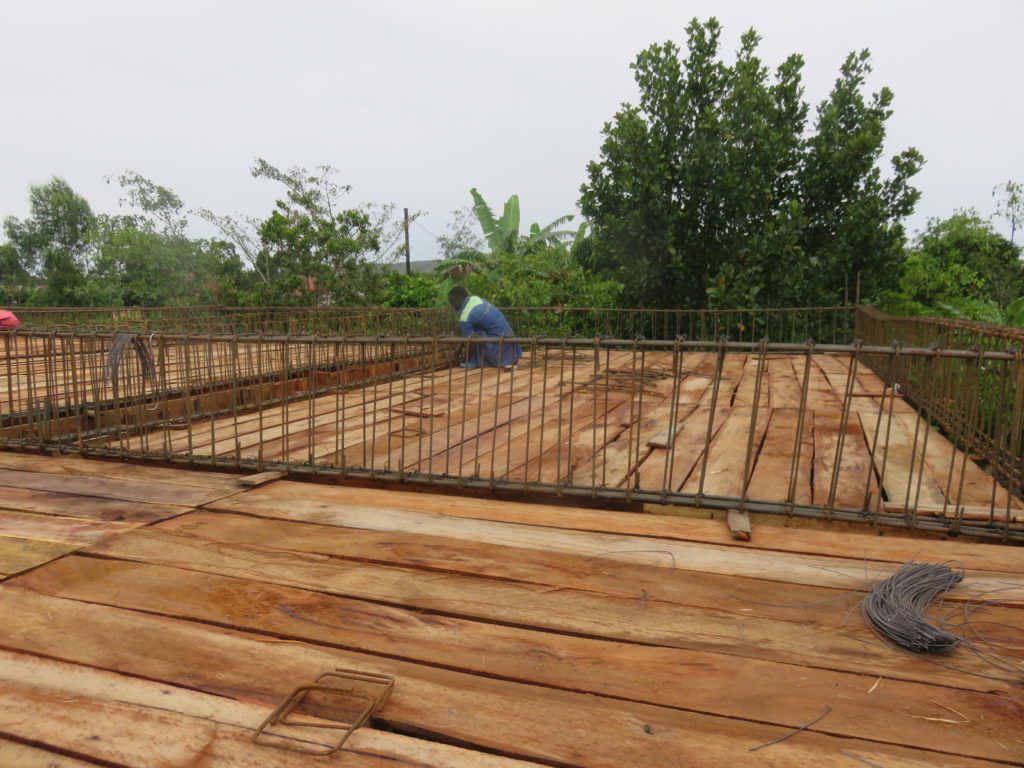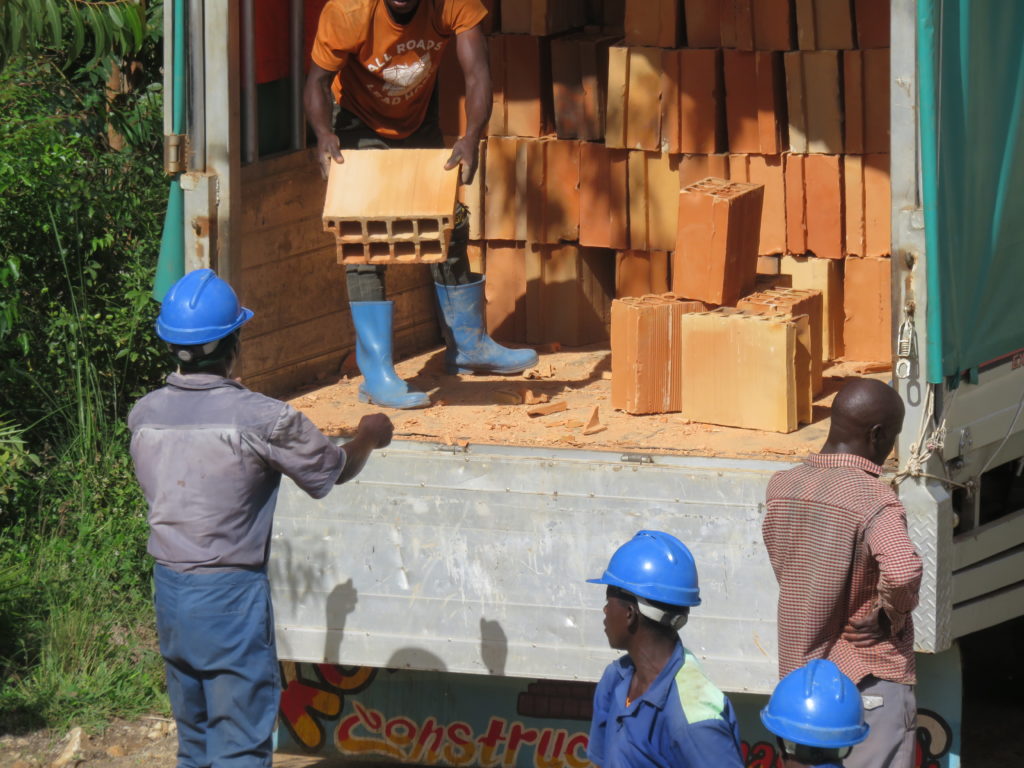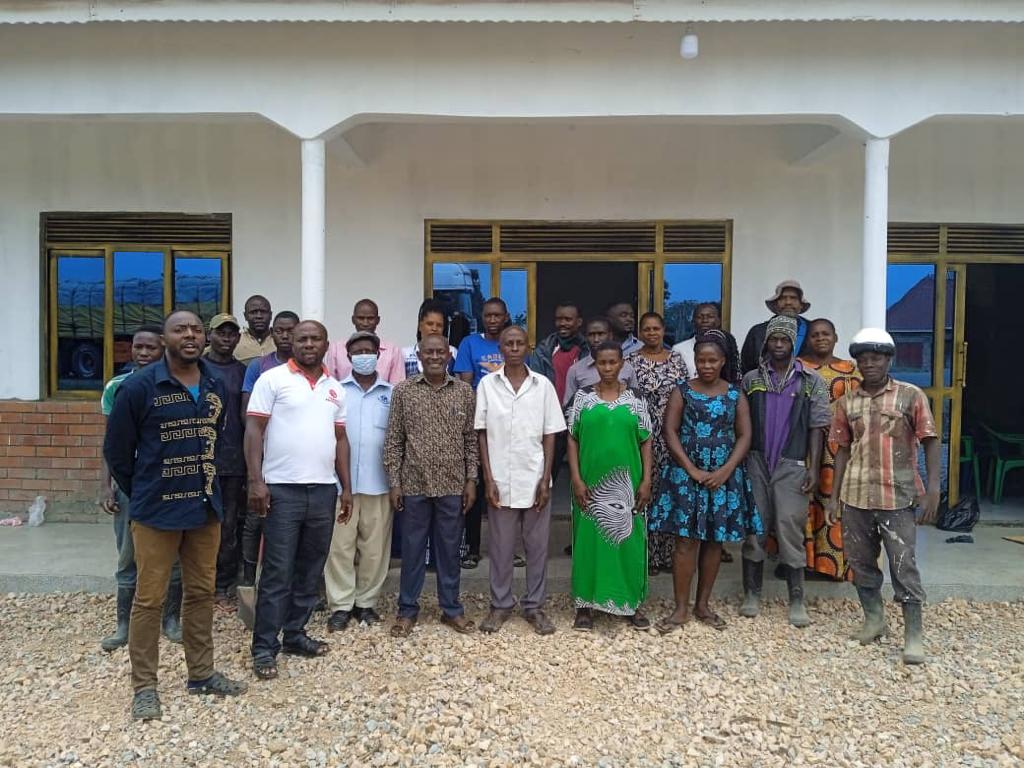Uganda (Kasasa)
To help preserve local heritage and provide formal and financial education, a rural community in Uganda is building its own school and Indigenous cultural centre.
In Uganda, formal education was introduced mainly as a part of the process of political conquest – many Indigenous traditions have been replaced with western-style schooling. Now, with 55% of Uganda’s population under 18 and 78% under 35, many traditions are dying out.
To help preserve local heritage and provide formal and financial community education, the US-based non-profit organisation The InteRoots Initiative has partnered with the community of Kasasa in Uganda to open up the Tat Sat Community Academy, also known as TaSCA.
The school and cultural institution, which have begun construction and will open later in 2022, seek to alleviate some of the challenges that students and community members face. Every aspect of the project – from concept to operation – is community-led and initiated.

Credit: TaSCA Project
The community’s vision was to create an institution that could serve the larger East African community by concurrently working to preserve cultural practices at threat of being lost, and engaging young minds in the creation of new forms of expression rooted in respect for the local heritage and culture.
Currently, the national curriculum is based on the system imposed through colonial rule, which community members believe lacks cultural and skills-based relevance. The Institute for Indigenous Cultures and Performing Arts (ICPA) will work alongside the school’s standard curriculum to provide a platform for community elders, leaders, and entrepreneurs to pass on Indigenous knowledge, cultural practices, and skills-based training. There will also be a Dance House, a place of gathering for community functions and activities.

Credit: TaSCA Project
There are plans in place to overcome financial barriers and ways to empower Kasasa community members. The Tat Sat Community Savings and Credit Co-Operative Society (TaSSCOS), which will begin operations soon, is community-owned, and along with providing direct financial services, will facilitate access to the banking system — often acting as a liaison between members and larger urban banks.
Nearly 60% of Africa’s population doesn’t utilise a bank because it is out of their reach. By pooling the risk and resources of the community at large – or smaller groups within the community (there currently exists a women’s business guild, for example) – the project makes financing viable from the perspective of larger financial institutions, an approach that’s already been tested in other rural communities around the world.
Farmers in the community are collectively financing a mill, which will provide locally sourced food for the students and staff. Beyond offering financial services to local entrepreneurs and families, the co-operative will work hand in hand with the school and community at large to provide financial literacy programmes and educational opportunities relating to business and finance.
In another approach to making TaSCA sustainable, community members are setting up a Graduate Enterprise Fund. Every time a student pays tuition, part of it will go into a fund that will be used to help students pursue their dreams post-graduation. These set-aside funds will be transferred directly to students who apply to use them for furthering their goals, like starting a business or continuing education. If the plan is approved by a community board overseen by the co-operative, the student will receive direct financial support – an estimated one to two years of stability – in pursuing their dreams beyond graduation.

The SACCO members. Credit: TaSCA Project
These two funding mechanisms and resources will be of particular importance to women and girls, who may feel like they lack access to educational opportunities compared to their male peers.
“Women and children have not been given an equal chance to financial progress and development,” said Namayega Agnes, a TaSCA Kasasa Community Board member and farmer. She is married with four children and excited about the possibilities the co-operative will have on the community. “You cannot imagine how much help this is to our community. When a genuine community program like this, with absolutely no strings attached, develops here, you can be sure we will give it our all.”
Scott Frank, executive director of The InteRoots Initiative, said the finance model the community of Kasasa has developed through the co-operative allows for continuing investments in individuals, institutions, and infrastructure.
“It connects existing economic and social sectors – both formal and informal – with financial tools and resources otherwise difficult to access in this context,” he said. “The vision is truly innovative, bridging a gap that often exists between education and real-world application. This project has enormous potential to serve as a model for other similar initiatives across the globe.”
AtlasAction: Want to support TaSCA and other InteRoots projects? Donate here.
Bio
Kristi Eaton is the communications consultant for The InteRoots Initiative and a freelance writer.
Project leader
InteRoots Initiative and Kasasa community
Support the Atlas
We want the Atlas of the Future media platform and our event to be available to everybody, everywhere for free – always. Fancy helping us spread stories of hope and optimism to create a better tomorrow? For those able, we'd be grateful for any donation.
- Please support the Atlas here
- Thank you!

